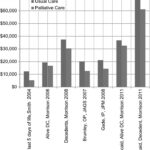Relocating for a new job is a significant life event, not just for the employee, but also for their spouse or partner. Recognizing this, many institutions, like Binghamton University, offer robust Dual Career Programs to support the employment aspirations of partners joining their community. If you’re asking “What Career Program Am I eligible for?” as you consider a move for your partner’s job, understanding these programs is crucial.
Dual Career Programs are designed to assist spouses and partners of newly hired or recently relocated employees in their own job search within the university and the surrounding area. These programs acknowledge the challenges of dual-career couples and aim to make the transition smoother for the entire family. They provide a range of services, from career coaching to networking opportunities, all tailored to help the partner find fulfilling employment.
Who Can Benefit from a Dual Career Program?
Generally, eligibility for a Dual Career Program, like the one at Binghamton University, extends to spouses or partners of individuals who:
- Have recently accepted a full-time position at the institution and are considering relocating.
- Have been employed full-time by the institution within the past two years and have relocated to the area.
These criteria ensure that the program focuses on supporting those who are navigating the complexities of job searching in a new location due to their partner’s employment.
What Services Do Dual Career Programs Offer?
The services offered by Dual Career Programs are comprehensive and designed to empower partners in their job search. These often include:
- Job-search assistance: Guidance and resources to navigate the job market effectively.
- Information on university job openings: Direct access to listings and support in applying for positions within the institution itself.
- Dual-career candidate identification: Formal recognition within the university system, potentially giving candidates an advantage when applying for internal roles.
- Résumé and cover letter coaching: Expert advice on crafting compelling application materials that stand out to employers.
- Interview skills development: Training and practice to enhance interviewing techniques and boost confidence.
- Networking opportunities: Connections with professionals and employers in the region to expand job search networks.
- Access to regional higher education job boards: Links to consortia and websites that list job openings at colleges and universities in the surrounding area, like the Upstate New York Higher Education Recruitment Consortium (UNY HERC).
By leveraging these services, partners can gain a significant advantage in their job search, making the relocation process less stressful and more successful.
Navigating Your Job Search with a Dual Career Program
Enrolling in a Dual Career Program is typically straightforward. The first step usually involves scheduling a meeting with program staff. This initial consultation is an opportunity to:
- Discuss your employment goals and career aspirations.
- Identify your specific job search needs and interests.
- Receive personalized feedback on your résumé or curriculum vitae and other application documents.
The program staff acts as a guide and support system, helping partners actively participate in their own job search journey. They provide resources, advice, and connections, but ultimately, the partner takes the lead in their career pursuit.
Frequently Asked Questions About Dual Career Programs
Q: Will a Dual Career Program guarantee me a job?
A: No, participation in a Dual Career Program does not guarantee job placement. These programs are designed to provide support and resources, but hiring decisions remain with the employers. The program’s value lies in enhancing your job search skills and expanding your network, increasing your chances of finding suitable employment.
Q: Will I get special treatment for university jobs because of the program?
A: While Dual Career Programs highlight your status as a dual-career candidate within the university system, preferential treatment is not guaranteed. However, acknowledging your participation can signal your connection to the university community and your commitment to the area.
Q: Can the program help me find jobs outside of the university?
A: Yes, most Dual Career Programs extend their support to job searches in the broader regional area. They can provide insights into the local job market, review your application materials for various sectors, and help you network beyond the university.
Q: If I’m looking for a job at another college nearby, can the program assist me?
A: Absolutely. Many universities participate in regional higher education consortia, which Dual Career Programs often leverage. These programs can direct you to resources like the UNY HERC website, which lists job openings at numerous colleges and universities in the region.
Q: How long can I utilize the services of a Dual Career Program?
A: The duration of services varies by institution, but a common timeframe is up to one year. This provides a substantial window of support as you navigate your job search after relocating.
Helpful Resources
For more information about equal opportunity employment, you can refer to resources from The State University of New York and Binghamton University, which are committed to Equal Opportunity/Affirmative Action.
By understanding what a Dual Career Program offers and what you are eligible for, you can proactively leverage these resources to support your career aspirations during a relocation. These programs are invaluable assets for dual-career couples navigating new professional landscapes.
